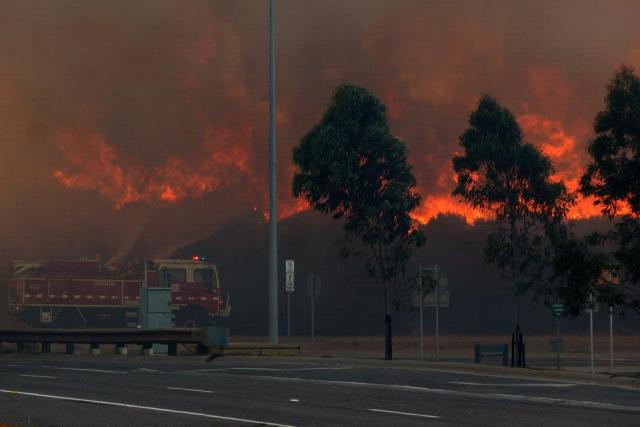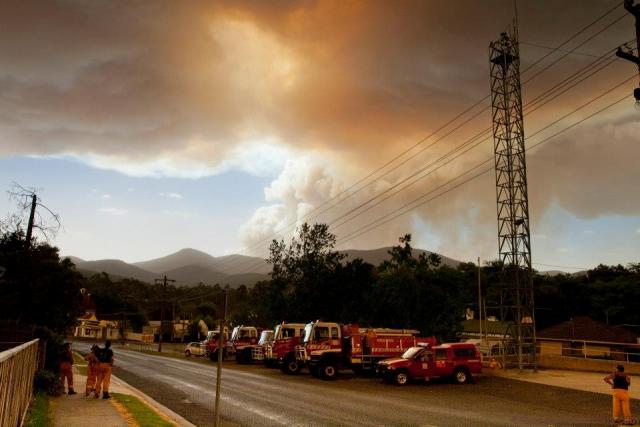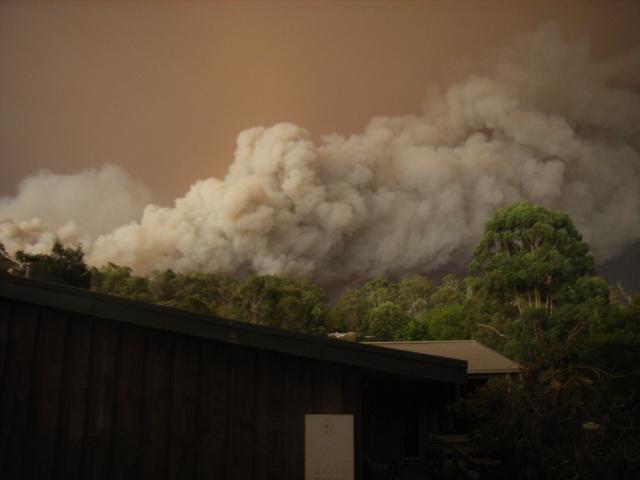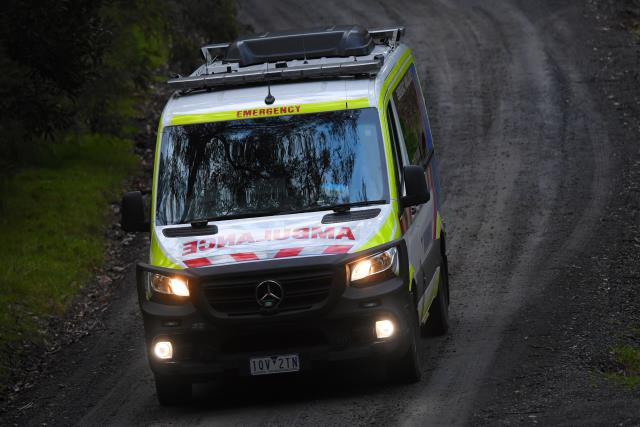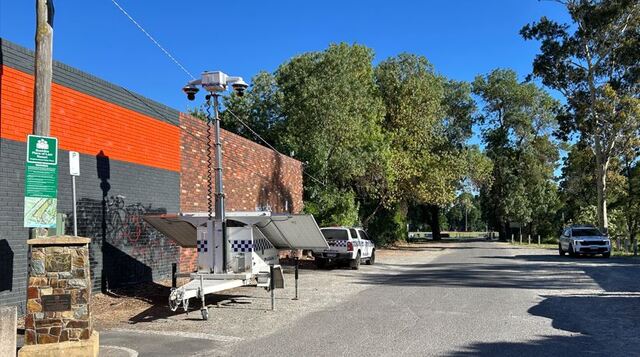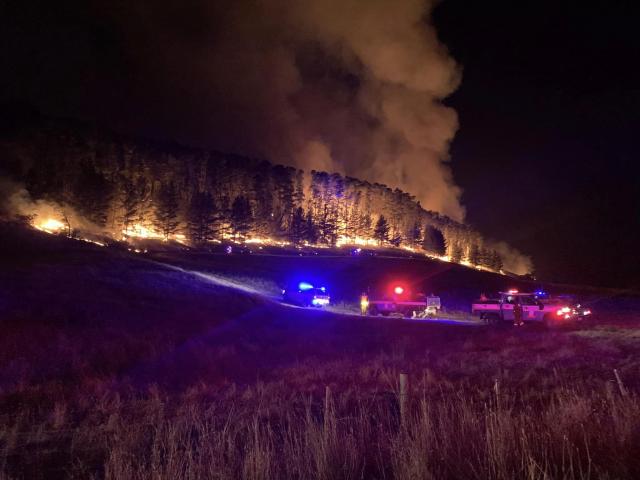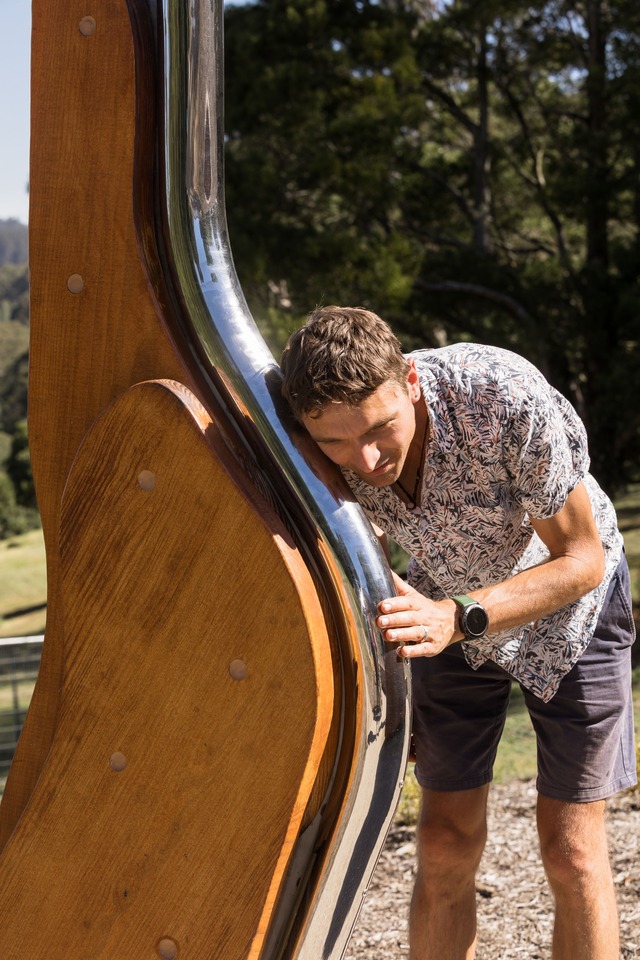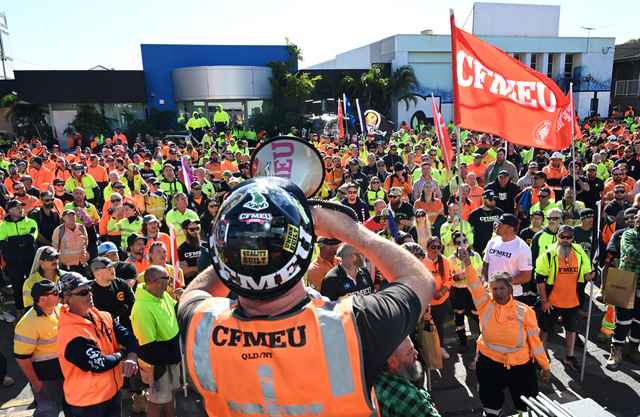Black Saturday marked its 15th anniversary on Wednesday 7 February.
It’s been 15 years, but many locals still remember the bushfires vividly and have tried to make the community safer by taking the lessons from the experience.
Healesville CFA member Ron Poole said he and his team were anxious because they couldn’t control the fires.
“We were more worried about the Murrindindi fire, which we thought would be what’d be mainly involved, but as time went past, it had shown that wasn’t to be the case,” he said.
“We were heading out to support Yarra Glen, they’d already had spot fires started around the whole town of Yarra Glen.
“We shot across here to give a hand which was pretty well before it was already gone heading towards Coldstream, so there wasn’t a lot that we could do.
“We headed back to Healesville because a wind change was starting to happen. We wanted to be back in the town more than out over at Yarra Glen, that’s basically the first part of the turnout.”
The team couldn’t do many things and they decided to focus on looking after people.
“As it turned and came towards Healesville, we were there more to just look after life, not so much the property,” Mr Poole said.
“We came back to the town, got some gear and then we headed up to the Chum Creek side, but the fires went on quickly and it was low in front of us.
“So we just did what we had to do, get people out of there.”
Since the Black Saturday bushfires, even though the CFA’s equipment has been upgraded, there has been a decreased number of volunteers joining local emergency services.
“Nobody seems to volunteer so it’s not just the CFA or SES but it’s every organisation that people don’t seem to want to volunteer and fire brigades are all getting older,” Mr Poole said.
“It’s going to come to a big crunch eventually.
Dixons Creeks CFA former captain Graeme Miller said he felt disappointed because his brigade was unable to stop the bushfires despite their massive effort.
“Normally when there’s a total fire ban, we are expected to log into superiors and ask about availability for the day, on this particular day [Black Saturday], they knew it was going to be pretty bad, so we were expected to, in fact, man our truck at 8.30 in the morning,” he said.
“We worked that day until well into early hours the next morning and we were back on the trucks again at 7.30 in the morning and worked the next day until about midnight, we were pretty well stuffed by the end of that period, however, we continued to turn out pretty much every day for the three weeks, sometimes multiple times a day.
“We did save quite a few but we lost a lot.”
Yarra Glen CFA captain Bill Boyd , who was captain at the time of the fires, recalled his experience.
“First fire hit us about 3.45 in the afternoon and from 3.45 to the next week, we were busy fighting fires,” he said.
“We lost 11 members of our community in those fires, numerous homes and businesses and it was something that should never be forgotten.
“Certainly don’t live in the past, it’s all move forward and learn from our experience and try to make the valley a beautiful place.”
The tragedy gave the lesson to the CFA brigades to prepare the properties before summer hits.
“Do their own fire preparation works of their own, fire suppression works, slashing the grass tidying up around the home and a lot of people have installed pump systems now,” Mr Boyd said.
“It’s about re-educating or educating new people to the area, we’ve seen the demographic change in 15 years.
“We have new people moving into the area, so it’s about coming together as a community and educating everyone about what happened and trying to prevent that happening again.”
Mr Boyd said many rules were changed after the Black Saturday bushfires.
“The rules were changed after the fires to enable people to clear large trees in close proximity to their homes and their boundary fences, that’s a good thing.
“Also, the building regulations were changed so that people’s homes depending on what part of the bush they’re living in, had different BAL [Bushfire Attack Level] ratings.
“The design and the construction of the homes were changed as well, so they are all real good lessons that we’ve taken from it [Black Saturday bushfires].”
Ryrie Ward councillor Fiona McAllister’s property was also affected by bushfires and she joined the Community Recovery Reference Group.
“I’ve been part of the reference group giving feedback to the council looking at ways to support the community with recovery but also look at what we needed to do into the future,” she said.
After she was elected as a councillor, Cr McAllister was committed to working with the most directly affected people and areas in the first few years.
“When I stepped into the council, I was part of a Bushfire Recovery Network and in first four or five years, a lot of it worked around making sure there was counselling support for people who clearly were still very impacted, financial support and grant funding that helped people cope with what they had to do with rebuilding or dealing with emotional trauma,” she said.
“Another important focus was on finding ways as a community to come together, remember, reflect and create places for the community.
“So we have two very beautiful reflective memorials in Ryrie Ward, there’s one in Yarra Glen which was created by a local artist and there’s one at Queens Park in Healesville.”
The Yarra Ranges Council (YRC) keeps working to minimise the risk of diverse disasters.
“Everything from our roadside slashing program to make sure we get the timing of that right, network with all of the emergency service providers and make sure there’s a much better connection with communication between the council and all of those agencies,” Cr McAllister said.
“We did a Healesville Structure Plan for the first time which is a strong consideration of how we better protect the town against bushfire.”
VicForests staff were part of a group who received bravery awards after rescuing campers threatened by the Black Saturday bushfires.
VicForests roading coordinator Ray Mackey and VicForests senior harvesting forester Jarrod Logue were recognised with a Group Bravery Citation as part of the Australian Bravery Decorations.
Mr Mackey said the award was a great thing for everybody involved in the rescue.
“It was a surprise to be nominated and to receive an award. It made my family very proud,” he said.
“Our team went to the Murrindindi Scenic Reserve on Black Saturday, and we were in the process of evacuating about 20 campers when the fire crossed the road, trapping us in the forest.
“The group included families and children and we spent a number of hours in the river as the fire burnt the hills on either side.
“It was a very intense experience until the fire front finally passed and we were able to escape.”
Mr Logue said the team was simply doing what was required in the difficult circumstances.
“A lot of people faced dangerous situations on that day, so to receive an award really was a surprise,” he said.
“I’m sure other people would have done exactly what we did if they found themselves in the same place at the time.”
Mr Logue said a large number of VicForests’ staff and contractors played an important role in fighting the Black Saturday fires.
“There is an enormous amount of fire experience within VicForests, particularly when it comes to dealing with high intensity bushfires,” he said.
“This knowledge of fire behaviour, and the on-ground role played by our contractors working in the forests, was vital in protecting the community.”

